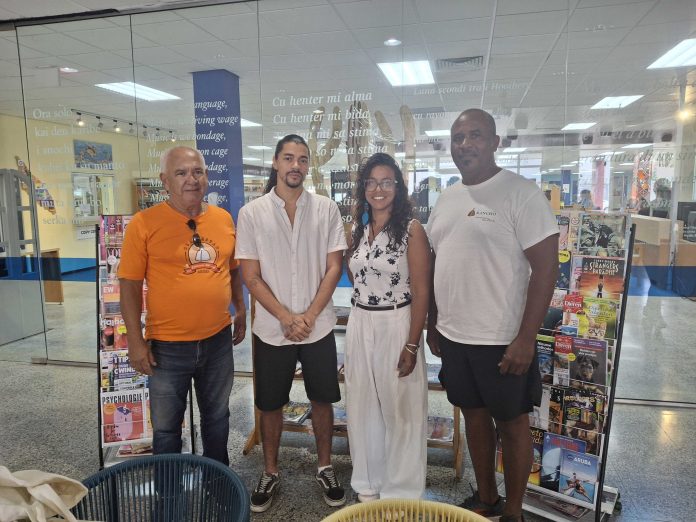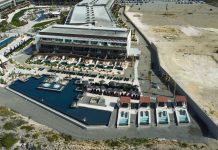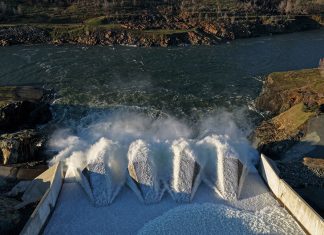Tuesday morning, during a press conference, the president of Stichting Rancho, Mr. Clifford Rosa, announced that Stichting Rancho will now carry the slogan of Aruba National Trust and is currently preparing to represent Aruba at the Global Sustainable Summit 2025 in St. Kitts and Nevis. This international event gathers leaders from islands around the world to share innovative solutions on sustainable development, climate resilience, and cultural heritage preservation.
Rosa explained that on April 20, Stichting Rancho celebrated its 15th anniversary, and in connection with this milestone, he announced one of the foundation’s first projects under its new role. He mentioned that thanks to international trust organizations, they will attend the Global Sustainable Island Summit taking place in St. Kitts & Nevis from May 25 to May 30.
The summit brings together government officials, non-governmental organizations, academia, and the private sector to exchange knowledge, strategies, and tools adapted to the unique challenges faced by islands. For Aruba and the Dutch Caribbean region, this summit is a crucial opportunity to raise their voices in global dialogue and ensure that solutions are grounded in Aruba’s realities and history.
Rosa continued by saying that through this process, they also want to educate themselves further on developments related to island innovation, but also on all the challenges that an island like Aruba faces in relation to global themes—particularly climate change and the various pressures on cultural heritage, both tangible and intangible.
Climate change, rising temperatures, and socio-cultural pressures such as Americanization, Eurocentrism, and an education system that prioritizes European narratives threaten the identity and sustainability of the population. Heritage is not just colonial buildings—it also includes oral traditions, fishing and farming techniques, natural landscapes, and collective memory.
The president of Stichting Rancho emphasized that as Aruba National Trust, they aim to move in a direction that integrates everything into a single approach to educate both the community and policymakers. He noted that while many international agreements are being made, the implementation or execution of many of these projects often falls short. This, too, is a challenge they face and want to address.
“For this reason, we are making a call—we ask the community to pay attention to the importance of attending to our cultural and natural heritage in a more structured way,” he stressed.
He further explained that their focus will be on the people living on the island. The effort is general, considering all the different people now residing in Aruba who often lack knowledge of what it means to live on an island.
He added that, in reality, much of the existing knowledge has already been lost due to the erosion of heritage, which is why Aruban citizens, visitors, and even those who come to live and work on the island must be educated—especially because Aruba presents itself through tourism.
“We found ourselves confronted with various issues during developments in Rancho, and we recognized that these same problems affect the entire island. Looking at the different developments we went through and the pressures that exist, this is why we stand firmly in support of our nature and our heritage—and how to conserve and preserve parts of that heritage,” Rosa emphasized.
During the 2025 summit, Aruba National Trust aims to contribute to broader representation of the islands of the Dutch Kingdom and will co-organize a thematic event together with the global network of National Trusts (INTO). This event will explore how heritage can be combined with climate and economic strategies, transforming existing models such as the “Dutch Slavery” model, Pan-African, and Indigenous land management models with ancestral knowledge.
As part of the summit preparation, Aruba National Trust will organize a series of “Integration Encounters.” These are not simply consultations—they are a call to work together. Aruba National Trust seeks to bring together communities of all origins, government departments, cultural organizations, and knowledge holders to build a more inclusive heritage model for Aruba.
















